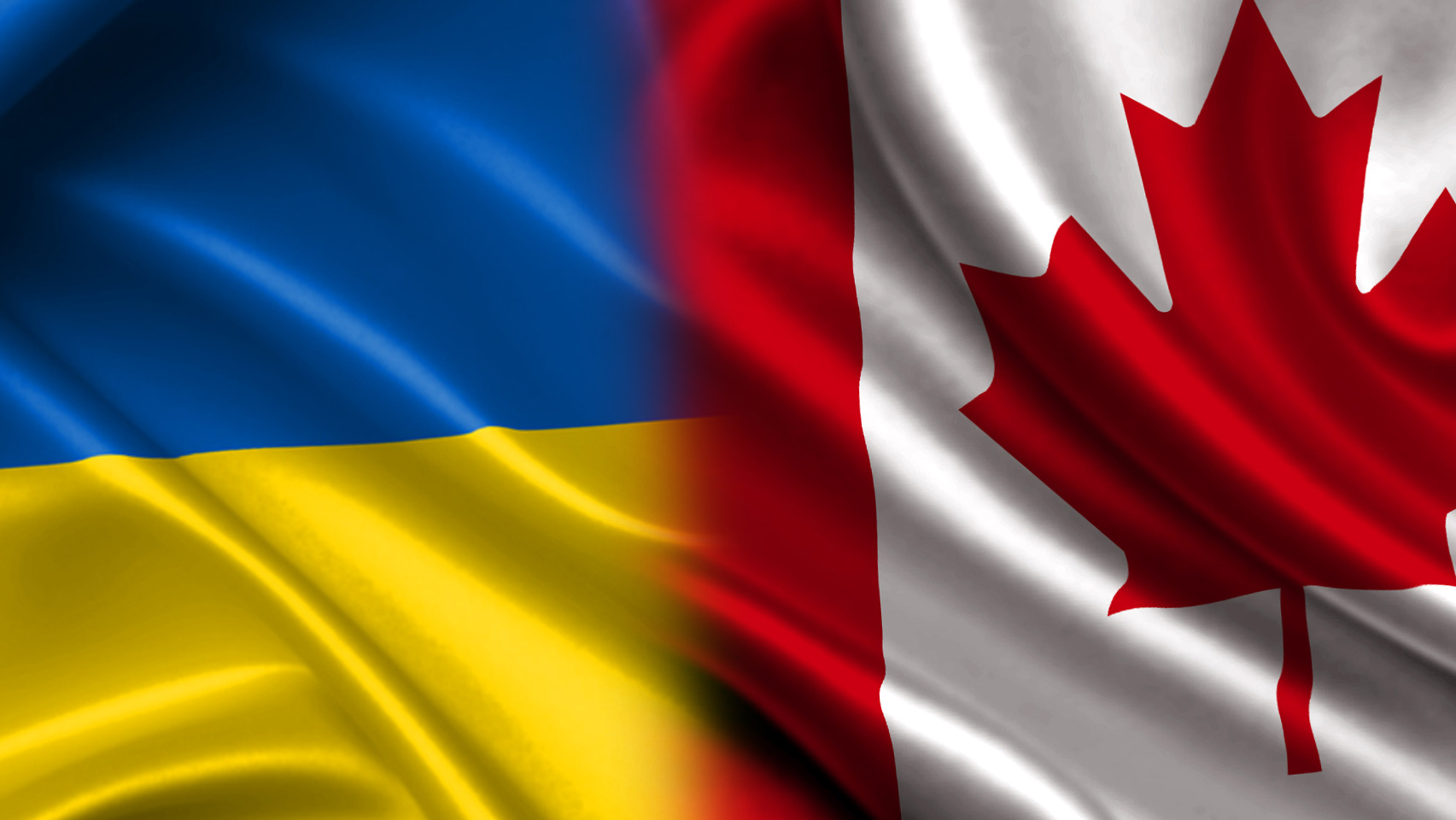Marco Levytsky, NP-UN Western Bureau.
Speaking at the 52nd Annual Shevchenko lecture in Edmonton, March 9, Andreas Umland, an associate professor of European studies in the department of political science at the National University of “Kyiv-Mohyla Academy” in Ukraine, suggested Canada can use its influence within NATO to help Ukraine enter into a security agreement with other East European countries.
What he had in mind would be a regional security structure which would include three non-NATO countries – Ukraine, Moldova and Georgia, all of whom have been subjected to Russian aggressions – with the regional NATO group known as the Bucharest Nine (B9).
What is the B9? As Umland explained in a November 10, 2017 article in Foreign Affairs: “The B9 is a little-known cooperation initiative among most of NATO’s new members. It was proposed by Romanian President Klaus Iohannis and his Polish counterpart, Andrzej Duda, during the November 2015 Bucharest Summit of the Central and Eastern European States. As part of the initiative, Bulgaria, the Czech Republic, Estonia, Hungary, Latvia, Lithuania, Poland, Romania, and Slovakia agreed to develop a special regional cooperation group in support of NATO’s objectives that specifically aimed to improve security and stability between the Baltic and Black Seas.”
In his article (which was co-authored by Vasile Rotaru, a Postdoctoral Researcher at the National University of Political Studies and Public Administration in Bucharest), Umland linked B9 with the Three Seas Initiative (3SI) ”born a year later at the August 2016 Dubrovnik Forum, where Croatian President Kolinda Grabar-Kitarovic, alongside Duda, proposed the creation of a north-south European axis inside the EU meant to strengthen eastern and central European economic cooperation within the union. It comprises the B9 countries plus Austria, Croatia, and Slovenia.”
Umland and Rotaru argued that by extending their membership to Georgia, Moldova, and Ukraine, the B9 and 3SI would not only help not only these three countries, but also improve their own geopolitical position and could start gradually filling the current security vacuum in what they termed “the eastern European gray zone”.
The problem, as Umland explained in the lecture, which was co-sponsored by the Canadian Institute of Ukrainian Studies at the University of Alberta, the Ukrainian Professional and Business Association of Edmonton and the Alberta Foundation for Ukrainian Education Studies Society, is that countries like Poland and Romania are concerned that entering into any kind of regional security agreement with Ukraine, Georgia and Moldova could imperil their Article 5 NATO security guarantees. Therefore, they need assurances that will not happen. But precedents do exist. He cited the example of NATO member Turkey, which has a regional security agreement with former USSR republic Azerbaijan. An agreement, ratified by both countries’ parliaments in 2010, pledges that both Turkey and Azerbaijan will support each other “using all possibilities” in the case of a military attack or “aggression” against either of the countries.
This precedent could therefore be used for the B9 to expand their security arrangements with Ukraine, Georgia and Moldova. But another problem is that Ukraine is not on Washington’s high radar. This is where Canada comes in. Canada could use its influence to nudge the U.S., U.K., France and Germany in the right direction.
It is worthy to note that where this idea of Canadian involvement came about, was as a result of a question posed by one of the audience members, Oliver Rossier, during lecture. His question was what Canada “as a Middle Power” could do?
And here we get to the crux of the matter – namely Canada as a “Middle Power”. The “Middle Power” concept first entered Canadian political discourse after World War II. Prime Minister Louis St. Laurent called Canada “a power of the middle rank” and helped to lay out the classical definition of Canadian middle power diplomacy. He noted “the special nature of [Canada's] relationship to the United Kingdom and the United States”, while stipulating Canada was not a “satellite” of either but would “continue to make our decisions objectively, in the light of our obligations to our own people and their interest in the welfare of the international community.” Where this really came to the fore was in the 1956 Suez crisis where Canada played the mediator role. There have been many other examples of Canada’s Middle Power diplomacy since then, but the key elements have always been Canada’s objectivity (honest broker) in diplomatic relations and its special relationships. These have become the two key words that laid the foundation of our foreign policy since then.
Well, if any country has a special relationship with Canada, it is Ukraine. And if any country can provide an objective case on the world stage for Ukraine’s long-standing desires for freedom and democracy, it is Canada. This is based on the historic role Ukrainian pioneers had in building this country and the enormous contributions people of Ukrainian origin made in all this country’s fields of endeavour. Canada also has the greatest gross number of Diaspora Ukrainians in the Free World. Considering the total population of the United States is ten times that of Canada, the proportion of Canadians of Ukrainian origin to the population as a whole is what puts Ukrainian issues much higher on the radar.
Which is why Canada must take the lead on proposing such an initiative. It makes perfect sense from an East European regional perspective to establish a security arrangement that includes both NATO members and non-NATO members whose own sovereignty is crucial to the security of the NATO members once occupied by Russia/USSR. And it fits right in with Canada’s historic Middle Power diplomacy.
This is an initiative which should be explored by the Canada-Ukraine Parliamentary Friendship Group, by Parliament as a whole, and – most importantly – by Foreign Minister Chrystia Freeland.
Share on Social Media




































